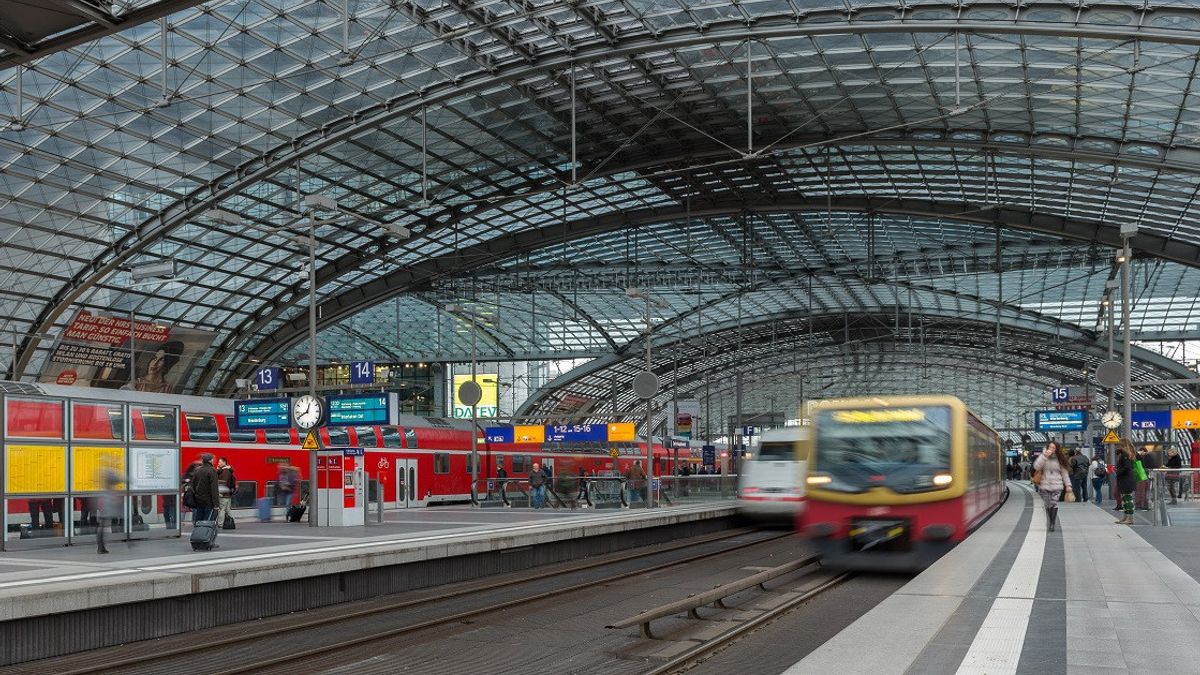JAKARTA - Drivers of passenger and freight trains in Germany staged a strike, related to demands for a salary increase, as well as the provision of one-time corona virus allowance.
The strike, which began on Wednesday local time, added to pressure on European supply chains and frustrated passengers as demand surged during the summer holidays, with the lockdown being relaxed.
German rail services company Deutsche Bahn announced in a statement that, with around 190 freight trains idle, the strike could have a major impact on industrial supply chains in Germany and across Europe, which has been hit hard by COVID-19.
Deutsche Bahn spokesman Achim Stauss said the company was trying to keep one in four long-distance trains in operation, traveling at least every two hours between major cities.
"We are doing our best to get people to their destinations today," Stauss said, urging travelers to postpone unnecessary travel.
With the strike planned to last until Friday morning local time, many stranded passengers stood waiting for their delayed trains at stations across Germany.

Meanwhile, a survey by Forsa for television broadcasters RTL and n-tv showed that 50 percent of respondents opposed strikes, while 42 percent saw them as normal.
"The strike is understandable. I support it, but the problem is there is almost no information on the internet about it," said David Jungck, a traveler stranded at Berlin's main train station.
From business circles, the German VDA Automobile Industry Association said the strike could add to the problems in the logistics industry, which is currently struggling to recover from the effects of the pandemic.
"If the strike lasts longer, considerable costs could be incurred for companies as supply chains are cut quickly leading to production shutdowns," VDA president Hildegard Mueller told Reuters.
Separately, the GDL Union, which represents the machinist group, will decide next week whether to continue the strike, its chairman Claus Weselsky told broadcaster ZDF on Wednesday.
Weselsky said the strike, which started at 2am for passenger services on Wednesday, had succeeded so far, bringing about 700 trains to a halt.
"Our colleagues are striking in a very disciplined manner," Weselsky told Reuters, adding the union would only return to the negotiating table if Deutsche Bahn made a better salary offer.
The GDL is demanding a wage increase of around 3.2 percent and a one-time coronavirus allowance of 600 euros. Meanwhile, Deutsche Bahn has offered a two-step wage increase for the next two years, but the union wants those increases to take effect early.
Having reported a loss of 5.7 billion euros in 2020, Deutsche Bahn, the state-owned rail company, said business had recovered since April, as COVID-19 travel restrictions eased and cargo traffic improved.
The company also expects to return to profit in 2022. However, the floods that hit western Germany last month have caused about 1.3 billion euros in damage.
To note, the last train strike in Germany was called by the EVG union in December 2018 and lasted only four hours.
The English, Chinese, Japanese, Arabic, and French versions are automatically generated by the AI. So there may still be inaccuracies in translating, please always see Indonesian as our main language. (system supported by DigitalSiber.id)








